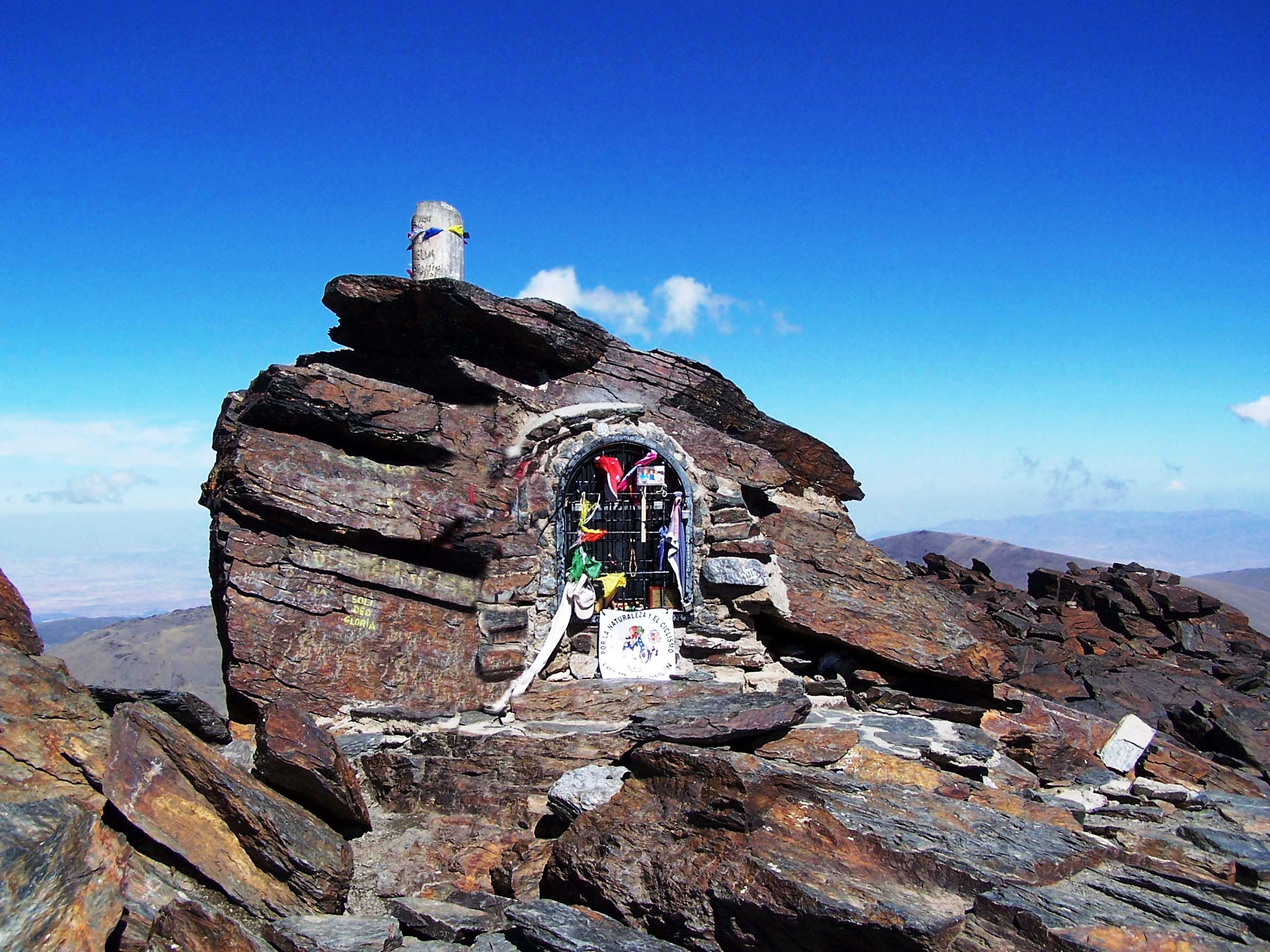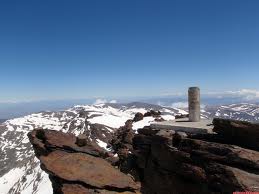
Jutting up above the surrounding Sierra Nevada mountains, Mulhacén Peak is the highest mountain in continental Spain and in the Iberian Peninsula and may just be the final resting place of a 15th century king. It is named after Abu l-Hasan Ali, or Muley Hacén as he is known in Spanish, the penultimate Muslim King of Granada in the 15th century who, according to legend, was buried on the summit of the mountain. Mulhacén is the highest peak in Europe outside the Caucasus Mountains and the Alps. It is also the third most topographically prominent peak in Western Europe, after Mont Blanc and Mount Etna, and is ranked 64th in the world by prominence. Summer is an ideal time to climb it, if you are looking for a easier challenge.
 The peak is not exceptionally dramatic in terms of steepness or local relief thus the path to Spain's tallest mainland peak is not actually too challenging, gently rising along the back of the mountain, but the view from the top is nonetheless breathtaking.
The peak is not exceptionally dramatic in terms of steepness or local relief thus the path to Spain's tallest mainland peak is not actually too challenging, gently rising along the back of the mountain, but the view from the top is nonetheless breathtaking.
The south flank of the mountain is gentle and presents no technical challenge, as is the case for the long west ridge. The shorter, somewhat steeper north east ridge is slightly more technical. The north face of the mountain, however, is much steeper, and offers several routes involving moderately steep climbing on snow and ice (up to French grade AD) in the winter.
Mulhacén can be climbed in a single day from the villages of either Capileira or Trevélez, but it is more common to spend a night at the mountain refuge at Poqueira, or in the bare shelter at Caldera to the west. Those making the ascent from Trevelez can also bivouac at the tarns to the northeast of the peak.


Despite the peak's relative ease, a group of hikers perished on the slopes in 2006 and a commemorative plaque now remembers them at the summit.
There are many companies offering guided walks to the summit so it is highly recommended that you do the walk with expert guides. At 3479 meters high Mulhacen is no walk in the park. You will need to be fit enough to climb to its peak and hardy enough to withstand the mountain elements. Expect to sweat for your food and to pick up a few blisters of you are not used to walking.
Altitude shouldn't be a worry and there are no sheer drops, but you will be walking for up to eight hours a day. If you have a the physical stamina and strength for this it is a really recommended hike. The ascent itself is non technical, so you don't need much mountaineering experience. With expert guides, comfy accommodation, good meals and some good boots it is rarely this quick and painless to scale a mountain.